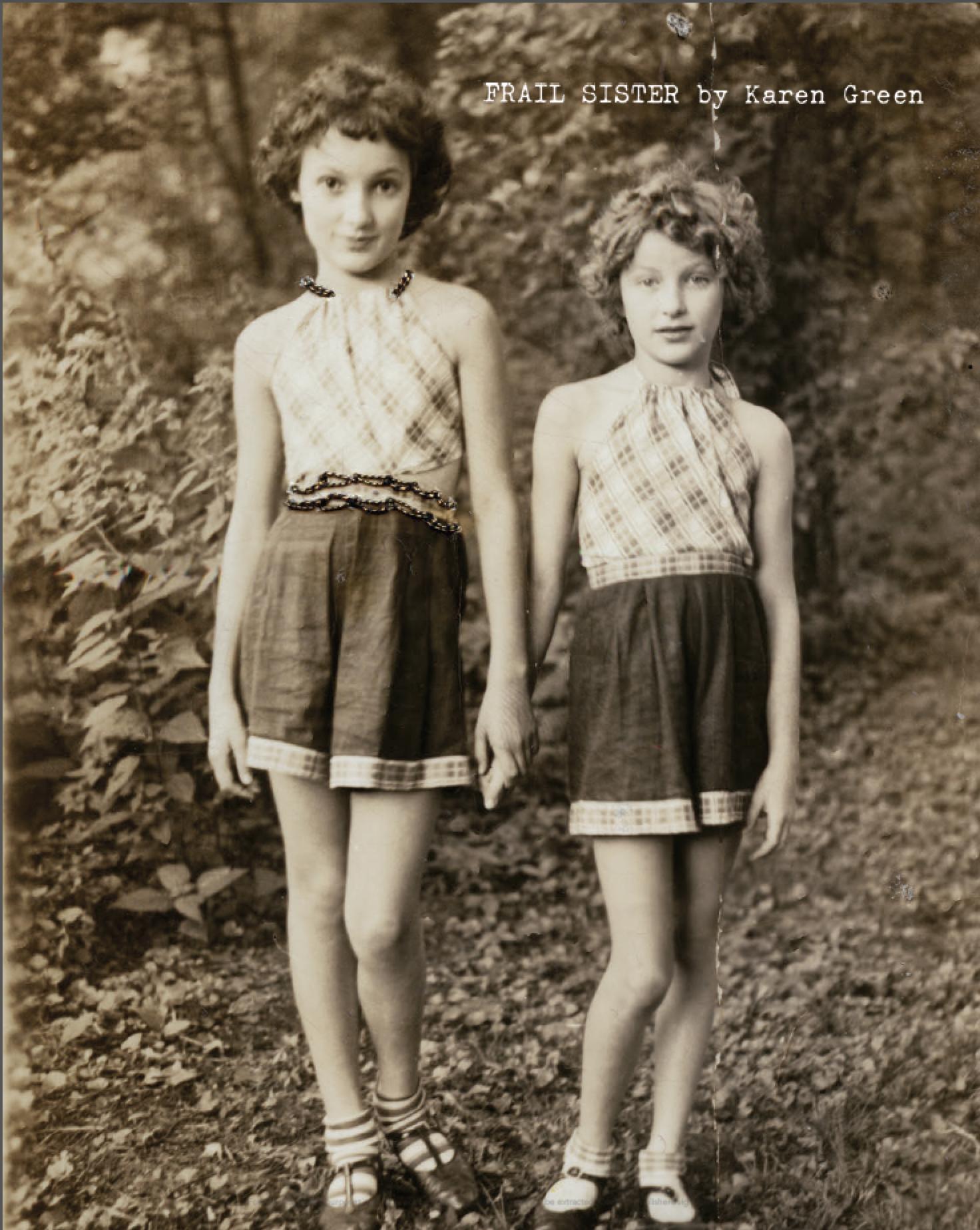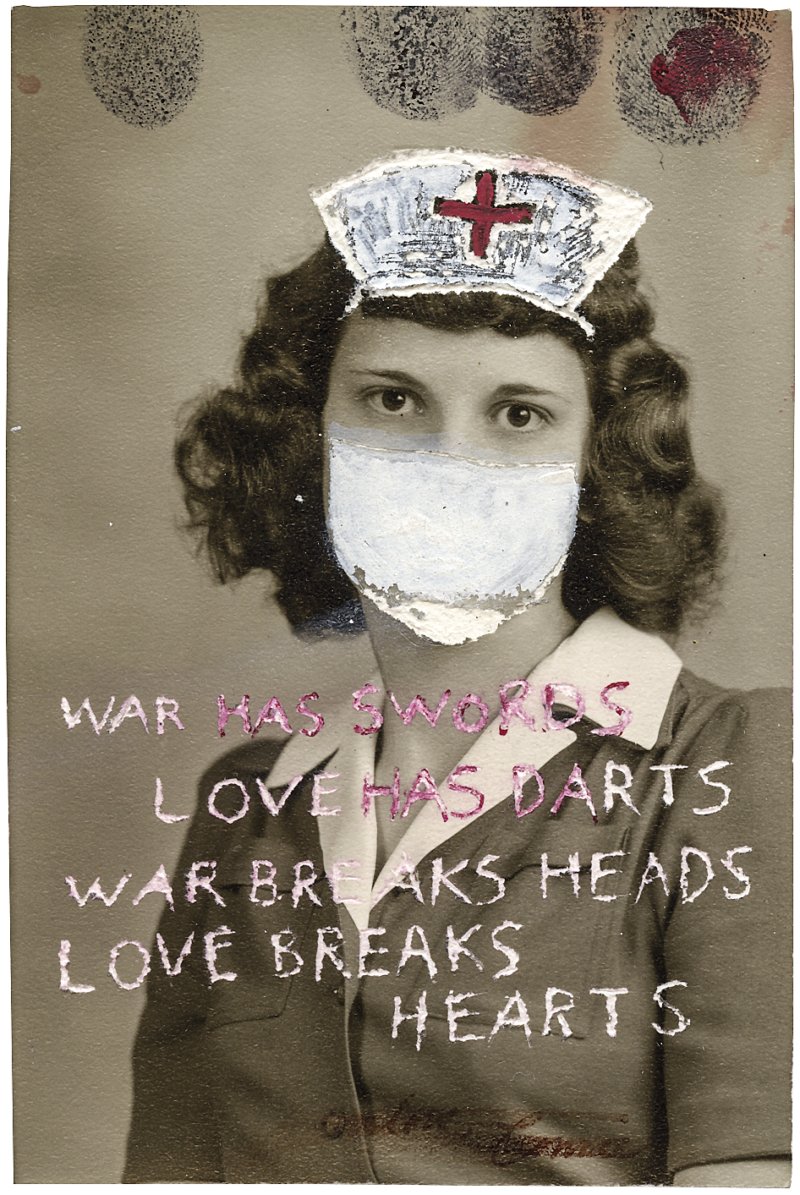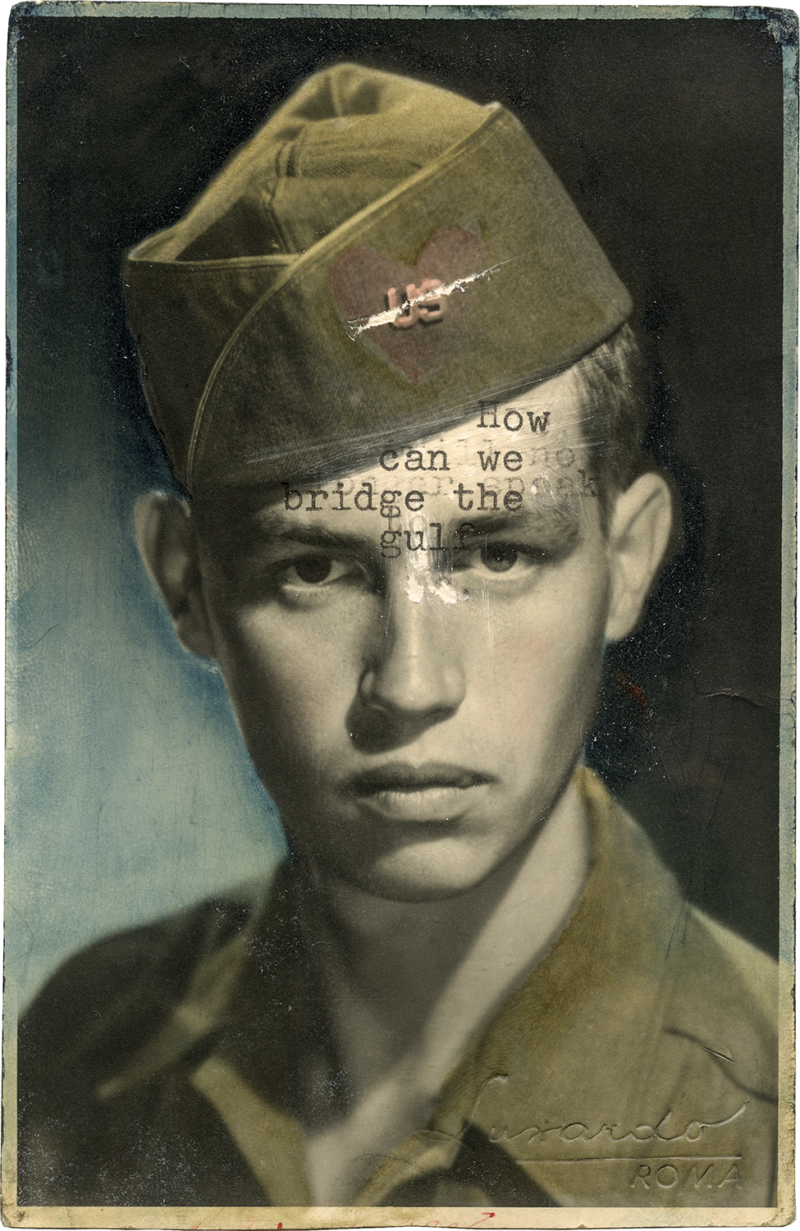
Format: 164 pp., hardback, full color; Size: 7.5″x10″; Price: $39.95; Publisher: Siglio Press; Drawings of birds: One; First names mentioned: Erastus, Clyde, Hank, Kip, Melvin, Sarge, Tubby, Quincy; Representative sentence: “He says, Alas, everything that comforts us can be lost to us, I should know that from the war.”
Central Question: When does a work of collage become literature?
Epistolary novels are always voyeuristic. After all, you’re reading someone else’s mail. What about the fictional archive, then? Composed of primary documents, images, and the scattered ephemera of life, you still get the thrill of transgression and discovery, but the curatorial aspect is foregrounded. Somebody assembled all this, and the question is why, and for what purpose.
In her book Frail Sister Karen Green gives a two-pronged answer. One is straightforwardly political: it’s a searing portrait of one woman’s destruction by men and their institutions in 20th century America. It’s also an ambitious collage attempting to place the reader within an imagined consciousness—typically the provenance of prose literature. Green achieves this: her book is transcendently and uniquely beautiful.
Frail Sister, similar in form to its predecessor Bough Down, is mostly comprised of a one-way correspondence by Constance (“Connie”) Gale to her sister. The letters are presented chronologically and span the decades bookending World War II.


You have reached your article limit
Sign up for a digital subscription and continue reading all new issues, plus our entire archives, for just $1.50/month.
Already a subscriber? Sign in




